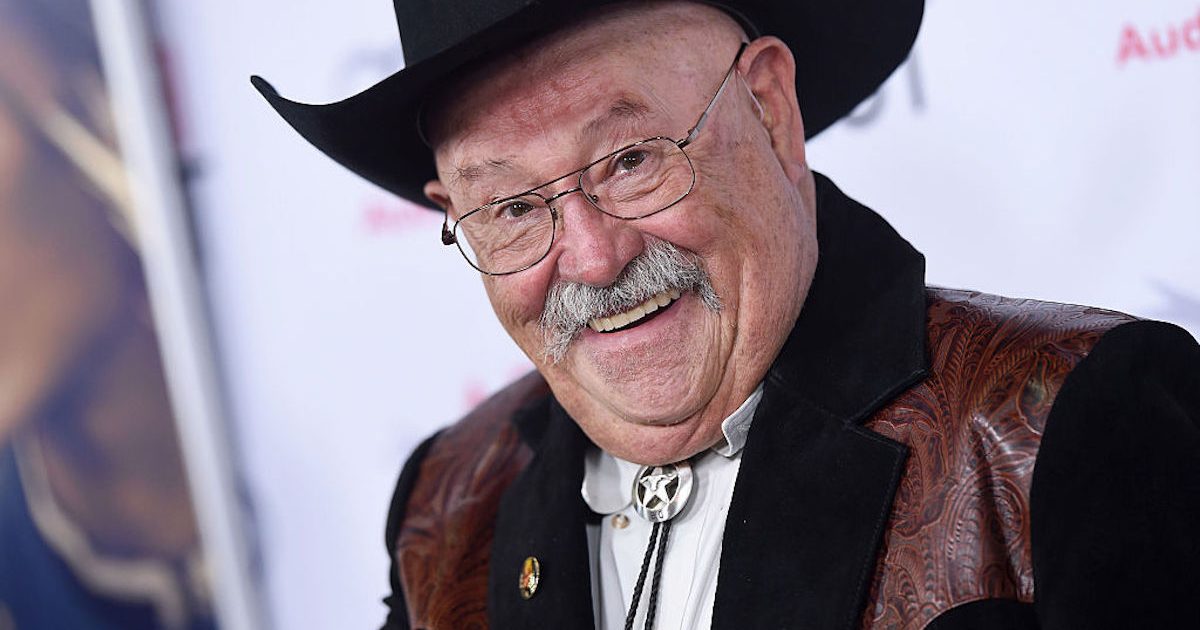The Actor Was Diagnosed With Oral Squamous Cell Carcinoma
- 82-year-old Yellowstone actor Barry Corbin shared that he was afraid treatment for oral cancer would take away his famous voice.
- Corbin was diagnosed with oral squamous cell carcinoma.
- Squamous cell carcinoma is a type of skin cancer, but when it is diagnosed in the mouth, it can be more difficult to treat.
- Corbin says he was wiped out after surgery to treat the cancer, but dedicated to getting back on his feet and continuing his craft.
The 82-year-old actor told People that he knew he had cancer, but was nervous about how taking time off from working would impact his career.
Read MoreFortunately, Corbin’s treatment went well and the actor was even ready to be discharged from the hospital the morning after surgery. On his recovery time at home, Corbin said, “I didn’t realize how much it would knock me out. I was sleeping 12 to 14 hours a day. It was a little difficult, but we got it done.”
About Oral Squamous Cell Carcinoma
Oral squamous cell carcinomas tend to develop after age 50. It is the most common type of oral cancer and about 34,000 people are affected by the disease in the U.S. each year, according to a report from Montefiore Medical Center.
Several factors have been linked to an increased risk of this type of cancer, including:
- Smoking (especially more than 2 packs a day)
- Alcohol use (especially more than 6 oz. of liquor, 15 oz. of wine, or 36 oz. of beer per day)
- Chronic irritation due to overuse of mouthwash, chewing tobacco, etc.
- Oral human pappillomavirus (HPV)
For most oral cancers, surgery is the initial treatment and may be followed by radiation or chemotherapy depending on how much the disease has progressed.
Signs & Symptoms of Oral Cancer
While there’s no indication that Corbin’s cancer was linked to these risk factors, it it critically important for everyone to be aware of the factors that may increase the risk of oral cancer. These cancers tend to cause lesions to form in the mouth and anyone concerned about something that’s popped up should see a doctor immediately to rule out oral cancer.
There are also steps we can all take to reduce our risks. Not smoking and being cognizant of how much we drink are obvious choices, but in recent years, there have been great developments when it comes to preventing HPV-linked cancers as well.
Dr. Jessica Geiger explains why the HPV vaccine is so important in cancer prevention.
Many people assume that HPV can only cause cancer in women due to its link to cervical cancer. However, the virus can also cause cancer in the head and neck.
“We recommend strongly that children are vaccinated against HPV to prevent cervical cancer, but also to prevent head and neck cancer,” Dr. Jessica Geiger, a medical oncologist specializing in head and neck cancer at Cleveland Clinic Cancer Center, told SurvivorNet. “HPV is spread through sexual contact. Now the key with the vaccine is that you received the vaccine before you ever reach sexual debut or have sexual encounters.”
The vaccine is recommended because HPV is so widespread in Western society, Dr. Geiger said. “Fortunately, for the majority of us over 90% we clear the virus without ever knowing that we were exposed. However, in a small subset 6% or 7% of the population the virus remains dormant in our body. And over time, meaning decades after we were first exposed, the virus gets into our DNA, and likes to settle in the tissues of the cervix or the back of the throat, and can ultimately cause changes that form cancer.”
What are HPV-Linked Cancers?
HPV can cause many different types of cancer and these HPV-associated cancers are common around the world and diagnosed in both women and men. According to the National Cancer Institute, high-risk HPV causes about 5% of cancers worldwide affecting an estimated 570,000 women and 60,000 men every year.
The virus can cause:
- Cervical cancer
- Oropharyngeal cancers (which typically develop in the throat)
- Anal cancer
- Penile cancer
- Vaginal cancer
- Vulvar cancer
Justine Alamada, the executive director and co-founder of the Anal Cancer Foundation, lost her mom to HPV-linked anal cancer. Her mom’s tragic passing inspired her to become involved in raising awareness about HPV-linked cancers and why the vaccine to prevent them is so important.
Co-founder of The Anal Cancer Foundation, Justine Almada, discusses awareness around HPV-linked cancers.
“HPV causes 5% of the world’s cancer and is completely preventable with a vaccine,” Justine told SurvivorNet. “It’s really important that we all understand that we are at risk from this virus and that there is actually something that we can do about it, which is making sure that our children are vaccinated against this carcinogenic virus.”
Learn more about SurvivorNet's rigorous medical review process.


